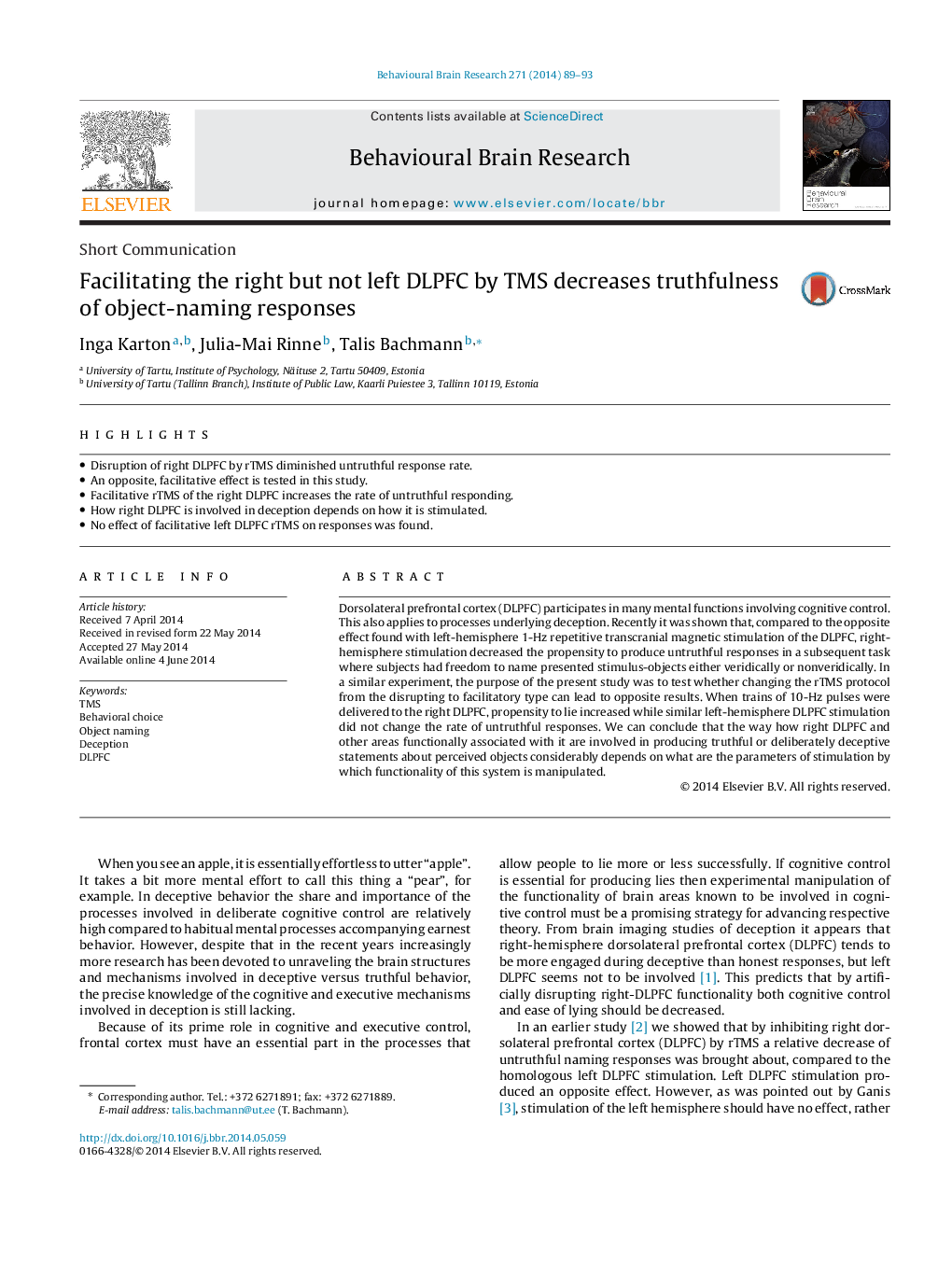| کد مقاله | کد نشریه | سال انتشار | مقاله انگلیسی | نسخه تمام متن |
|---|---|---|---|---|
| 6258079 | 1612961 | 2014 | 5 صفحه PDF | دانلود رایگان |

- Disruption of right DLPFC by rTMS diminished untruthful response rate.
- An opposite, facilitative effect is tested in this study.
- Facilitative rTMS of the right DLPFC increases the rate of untruthful responding.
- How right DLPFC is involved in deception depends on how it is stimulated.
- No effect of facilitative left DLPFC rTMS on responses was found.
Dorsolateral prefrontal cortex (DLPFC) participates in many mental functions involving cognitive control. This also applies to processes underlying deception. Recently it was shown that, compared to the opposite effect found with left-hemisphere 1-Hz repetitive transcranial magnetic stimulation of the DLPFC, right-hemisphere stimulation decreased the propensity to produce untruthful responses in a subsequent task where subjects had freedom to name presented stimulus-objects either veridically or nonveridically. In a similar experiment, the purpose of the present study was to test whether changing the rTMS protocol from the disrupting to facilitatory type can lead to opposite results. When trains of 10-Hz pulses were delivered to the right DLPFC, propensity to lie increased while similar left-hemisphere DLPFC stimulation did not change the rate of untruthful responses. We can conclude that the way how right DLPFC and other areas functionally associated with it are involved in producing truthful or deliberately deceptive statements about perceived objects considerably depends on what are the parameters of stimulation by which functionality of this system is manipulated.
Journal: Behavioural Brain Research - Volume 271, 1 September 2014, Pages 89-93